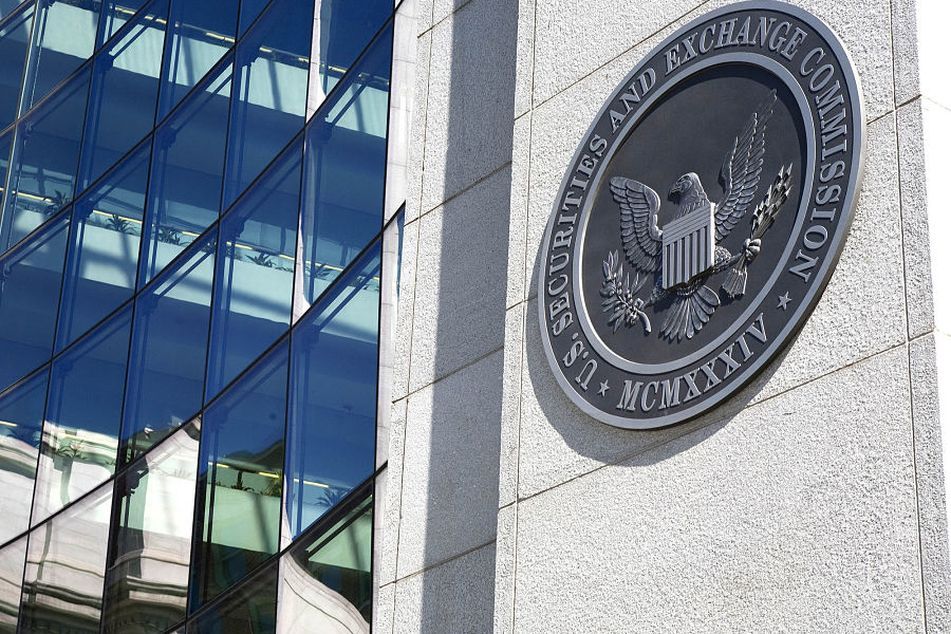SEC use of in-house judges to be reviewed by Supreme Court

The justices said they will hear a Biden administration appeal of an appeals court ruling that cast a constitutional cloud over the agency's use of in-house judges.
The Supreme Court will review a ruling that cast a constitutional cloud over the use of in-house judges to handle cases pressed by the Securities and Exchange Commission.
The justices said they will hear a Biden administration appeal that contends the federal appeals court ruling will have “massive practical consequences” across the government if not overturned. The decision by the 5th US Circuit Court of Appeals found multiple flaws with a system the SEC uses for hundreds of cases a year.
The case adds to a 2023-24 term that was already set to have broad implications for federal regulators. The justices are also planning to consider whether the Consumer Financial Protection Bureau’s funding system is constitutional and whether to overturn a precedent that gives agencies leeway when they interpret ambiguous congressional commands.
The 5th Circuit said in a 2-1 decision that Congress violated the Seventh Amendment, which protects the right to a jury trial in civil lawsuits, by letting the SEC ask an administrative law judge to impose penalties rather than going to federal court. The 5th Circuit also said Congress gave the commission too much leeway to decide which cases will go before its in-house judges.
In addition, the 5th Circuit panel said the judges’ job protections leave them too insulated from presidential control.
The decision stemmed from an SEC complaint against George Jarkesy, a hedge fund manager accused in 2013 of misleading investors about who served as the funds’ prime broker and auditor and about their investment strategies and holdings. An administrative law judge found Jarkesy had committed securities fraud, and the SEC eventually ordered him to pay almost $1 million.
Jarkesy’s lawyers said he was “put to trial before a captive agency judge sitting unconstitutionally, with no right to a jury, and no way to escape to court.” They urged the Supreme Court to reject the appeal without a hearing.
ADMINISTRATION APPEAL
The SEC has become a prime target for critics of federal agencies. In a 2018 ruling, the court said the agency’s administrative law judges had been unconstitutionally appointed and needed to be named directly by the commission.
Since then, the commission has begun sending more cases to court. The agency also took steps on June 2 to whittle away its in-house caseload, announcing it was wiping the slate clean for about 90 administrative enforcement matters, some of which had been open for years. The SEC has about a dozen administrative law judges.
Solicitor General Elizabeth Prelogar, the Biden administration’s top Supreme Court lawyer, is representing the SEC. She contends that Congress may authorize an agency to handle certain types of cases in house rather than going into federal court, where the Seventh Amendment jury-trial right would apply.
The administration also faults the 5th Circuit for invoking the “nondelegation doctrine,” a rarely used constitutional rule that says Congress must give clear guidance to an agency before handing off its legislative responsibilities. The appeals court said Congress violated that doctrine by giving the SEC “unfettered authority” to choose where to press its cases.
Prelogar argued that the nondelegation doctrine doesn’t apply because SEC officials aren’t making a legislative decision. “The commission’s decision whether to pursue an administrative or judicial remedy in a particular case is a core executive function, not the exercise of legislative power,” she wrote.
The job-protection issue is connected to one the court confronted in 2010, when it said members of the Public Company Accounting Oversight Board were too insulated from presidential oversight. Both the PCAOB members and the SEC commissioners who appointed the board could be fired only under limited circumstances.
Writing for the majority in that case, Chief Justice John Roberts faulted Congress for “committing substantial executive authority to officers protected by two layers of for-cause removal.” But Roberts also held out the possibility the protections for SEC administrative law judges might be constitutional because their jobs are different from those of board members.
“Unlike members of the board, many administrative law judges of course perform adjudicative rather than enforcement or policymaking functions,” he wrote.
The case is Securities and Exchange Commission v. Jarkesy, 22-859.
Why alternative assets belong in retirement accounts
Learn more about reprints and licensing for this article.







